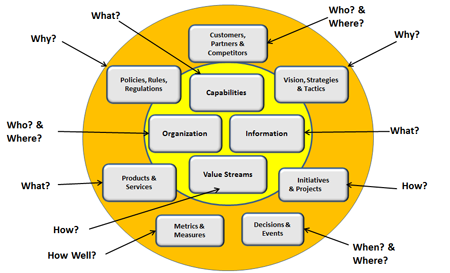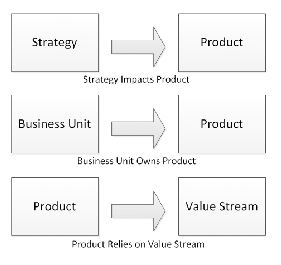Let me start with a provoking question: Business architects create capability roadmaps and product managers create product roadmaps. What is the difference and which is more valuable for my business? If product managers manage all the products of a company, is there a need for business architects and capability roadmaps?
Some of us, who are practicing business architects and familiar with “Guide to the Business Architecture Body of Knowledge™” (BIZBOK® Guide), may find this question offensive. However, this could be a reasonable question from any senior business leader (particularly unfamiliar with business architecture and product management disciplines).
Let us consider a typical large non-manufacturing business today with a complex product portfolio. Such complex product portfolios include software products, BPO services, insurance, warranty services etc. Some of these products may have come through acquired businesses. Few of these products may already have product managers. A slew of business capabilities are required to deliver these products & services to the market place. Driven by competitive marketplace today, companies try to expose more business capabilities as products & services to the market. This in turn increases the complexity of product portfolio. Senior business leaders desire to develop a blueprint for the way forward.
Product managers are responsible among other things for product vision, market research, competitive analysis, target market, customer requirements and roadmap. This can give executives a strategic view for each product. If product managers are responsible for only few products, it may even make sense to hire product managers to handle rest of the product portfolio as well. However, based on Product lifecycle management (PLM) artifacts alone, it is difficult to get a capability centric view of the product portfolio and company as a whole. One can reasonably expect that some of these products may rely on same business capabilities supported by different set of organization, processes and technology assets. How can executives get a capability centric view across products?

Figure 1 – Business Architecture (i)
Business architecture is valuable for leadership to understand the current state of enterprise holistically and develop a blueprint for the way forward. Figure 1 shows that product mapping is one of the components of Business architecture to give a holistic view of the enterprise. Business architect can leverage product mapping to map and detail the following relationships in Figure 2. Product mapping can reveal how different products rely on same business capabilities but supported by different organization, processes and technology. This in turn presents the opportunity for business leaders to address opportunities for
- Shared services across products
- Shared infrastructure across products
- Areas for sharing best practices
- Areas of synergies across products

Figure 2 Product to value stream mapping example (i)
Product managers and product management artifacts do serve an important value for the enterprise. However, it does not substitute the value of Business architect and business architecture artifacts.
The BIZBOK® Guide in product mapping chapter distinguishes value of business architecture succinctly: “The business architecture is not meant to supersede product design or tracking tools, bill of material technologies, or other in-house or third party application software that is designed specifically for product management. This is not the purpose of incorporating product into the business architecture. Rather, product is incorporated into business architecture as a way of providing visibility into the overall performance of business strategies, value delivery, capabilities, initiatives, business unit and third-party relationships, and other aspects of the business. This information would not be available in traditional product management tools or applications and this is where the real benefits of product mapping within business architecture emerge.”
The BIZBOK® Guide takes a step further and states: “Finally, product mapping within business architecture requires a degree of maturity and commitment to business architecture that does not exist in many organizations.” As industry matures, business leaders can invest in seamless integration of product management views into business architecture.
In conclusion, product management and business architecture provide different values for the organization. One can view product management as one of the key capabilities of the company. Business architecture can provide a wider view of the enterprise beyond product management and complement product management. I would like to hear back from readers regarding thoughts on this topic, please comment below.
References
(i) Source: Business Architecture Guild – businessarchitectureguild.org

















